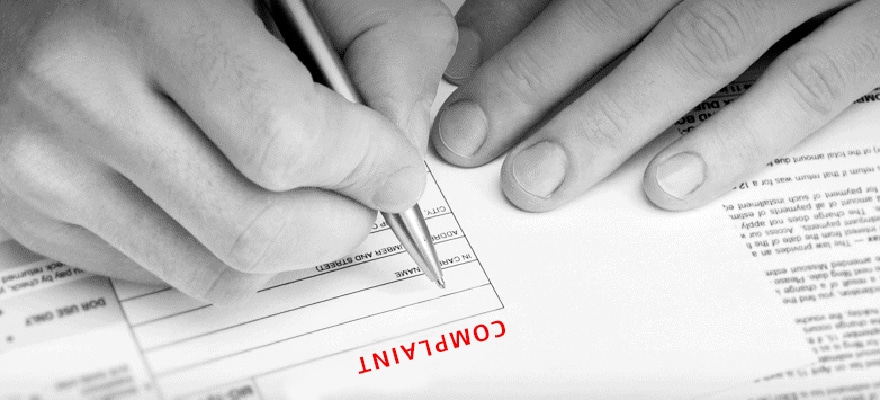Every forex broker dreads the thought of a customer complaint being escalated to an external body – whether a dispute resolution scheme (we’ll call it an External Dispute Resolution (EDR) scheme) or the courts. However in the event this occurs, license holders should have an understanding of the process. If you are a member of a dispute/complaint scheme, take the time now to make sure your registered contact details are up to date.
Details of complaints from clients could be going through to a staff member who has left your organization, is on extended leave or is not on top of their emails, meaning you are open to having decisions found against you for failing to respond. Likewise you don’t want the mobile number of your CEO on the public register for all disgruntled clients to harass them in the middle of the night.
All forex brokers that deal with retail clients (for this article we’ll focus on the UK, Australia and NZ) are required to have adequate complaints processes internally and also be a member of an EDR scheme. Should membership with the EDR scheme cease, the license holder is in breach of one of its obligations. The relevant regulator will also need to be advised within the relevant timeframes, should EDR membership details change or membership ceases.
DISPUTE RESOLUTION SYSTEMS
In 2013, the Financial Commission was launched as an alternative dispute resolution committee to provide the industry with a dispute resolution service that does not involve regulatory interference. The Dispute Resolution Committee of the Commission is comprised of senior members in the forex industry. Despite this progressive idea for dealing with margin FX complaints, forex brokers in some jurisdictions are still required to be members of dispute schemes so we have not seen a large uptake of this service from our clients.
The EDR schemes are free for clients, funded by member levies (and an additional fee is generally levied on the broker for each individual complaint and how far it goes through the EDR system).
Further, proceedings are not bound by any legal rules of evidence and therefore not subject to precedent. This means the decision they make in one set of circumstances will not necessarily be the decision they make in a similar set of circumstances. The EDR has an obligation to carry out its consideration and resolution of disputes in a manner that is fair to the forex broker and the client bringing the dispute. Generally the EDR is only required to draw out the facts but does not require parties to give evidence under oath.
TIPS FOR DEALING WITH COMPLAINTS
1. Ensure the response to the client is on company letterhead rather than on your legal or compliance firm’s letterhead. In Australia, ASIC has recently issued a media release about QBE Insurance (Australia) Limited corresponding with clients on the letterhead of the company’s legal representation and the barriers it creates for clients. ASIC also found that corresponding with clients on legal letterhead was inconsistent with an AFSL holder’s dispute resolution obligations and Australian standards for complaints handing.
2. Consider whether the complaint is really about you or whether it is actually more appropriate that the client contacts a product provider or some other party (e.g. introducing broker, managed account provider, software company, Expert Advisor provider). Tell them who to contact in writing.
3. Do a cost benefit analysis in terms of the time you will spend defending the complaint versus the cost of settling the matter.
4. Remember that complaints can feel personal and often responses become emotional, it is good practice to get someone external to the situation, i.e. a colleague, compliance consultant or lawyer, to proof read the response before it is sent out.
5. Get a confidentiality or non-disclosure deed so that the client cannot publicize their settlement on any blogs or chat rooms.
TIPS FOR HANDLING THE EDR PROCESS
In the circumstance that a license holder has a dispute bought against them through an EDR scheme, we recommend considering the points below:
1. Check if this complaint has actually been through your internal processes and sufficient time elapsed before the client has escalated the dispute. If not, let the EDR know immediately so you can have more time without their involvement.
2. Diarize the required response dates as soon as you get any correspondence from the EDR scheme so you don’t miss it.
3. If you haven’t already let your PI insurer know about the complaint and the potential for paying compensation, now is the time to do so.
4. Do your cost benefit analysis again – speak with the EDR scheme to get an indication of the fees that will be charged each step of the way through their process
5. Consider the conditions around any settlement agreement proposed. Consider including conditions which prevent the client posting any information or comment regarding the dispute on online blogs. A Non-Disclosure Agreement should be put in place between the license holder and the client which clearly outlines the quantum for recourse against the client should they disclose or publish the terms of the settlement.
6. If the license holder does not feel that they are the appropriate person to be on the receiving end of a complaint, the license holder should deter the EDR scheme from investigating them any further and point the EDR scheme toward a more appropriate person to be on the receiving end of the complaint.
7. Can the dispute excluded based on it falling outside the EDR scheme’s Terms of Reference or Charter? Read the provisions carefully. This may help you avoid a lengthy dispute.
8. Have all necessary documents on hand and easily accessible to ensure you can provide responses to the EDR scheme within the specified time frame and ensure the dispute is resolved in a timely manner. It is best practice to ensure all correspondence with clients is kept.





Be First to Comment